Jennifer Markowitz’s exhibit Fleshmap: My Unraveling Geographies is an embroidered atlas that charts her emotional cartography. The exhibit, recently on display in her Art Space studio in Raleigh, North Carolina, uses various textiles and cloth-based objects (slip dresses, bras, hosiery, pillowcases, bedsheets) to embroider tableaus from memories of her past. Markowitz storyboards both text and images in stitches ranging from French knots to chains and lazy daisies.[1]
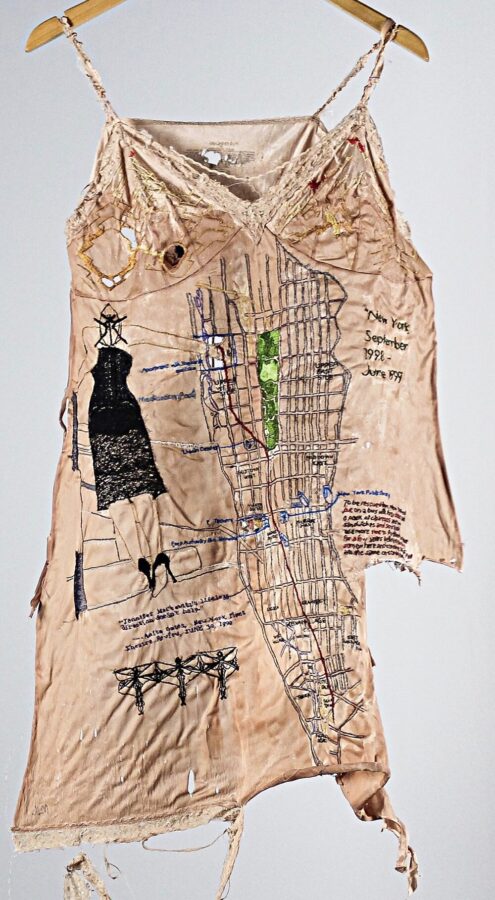
These geographies, as Markowitz describes them, are multivalent. Markowitz creates aerial maps of cities she has lived: Beirut, Chicago, Dublin, Los Angeles, New York City, and Reykjavík, among others. These maps function as visceral topographies, creating a texturally rich map of her migration patterns. But she also juxtaposes the maps alongside her stitched diary entries, textual vignettes mapping her emotional terroir onto specific sites. Perhaps the most significant geography of this exhibit, then, is the somatic landscape it reveals about the artist, particularly in light of her diagnosis of bipolar disorder.

The renowned trauma psychiatrist Bessel van der Kolk remarks in his book The Body Keeps the Score that it takes enormous courage and faith to give oneself the permission to revisit and remember one’s own history.[2] Markowitz’s depiction of memory feels profoundly vulnerable and intimate, needleworked in variegated shades and manic patterns. Her work bears witness to the afterimage of trauma, as her very stiches imprint her various neurological episodes.
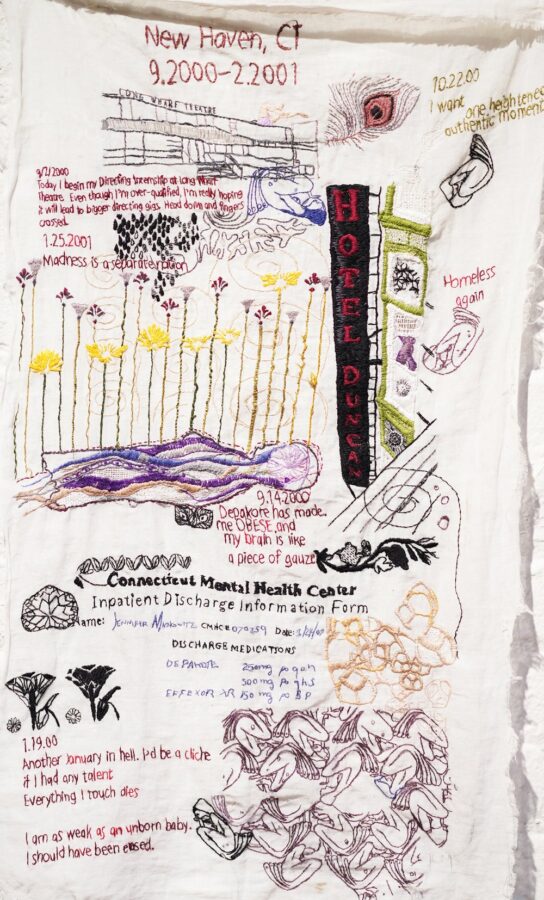
I recently had the pleasure of speaking with Markowitz in her studio. She disclosed to me that she has found great solace through her practice of embroidery, that it has finally quieted her mind. But the process, she explains, is not meditative. Rather, she sees the stitches as a form of memorial excavation. Her work reorganizes a nonlinear narrative, as if to “cut the pieces from her” and “abandon them before they kill her.” Thus, her exhibition seeks to exorcise her memories, to set herself free of these relics of experience through thread and needle.
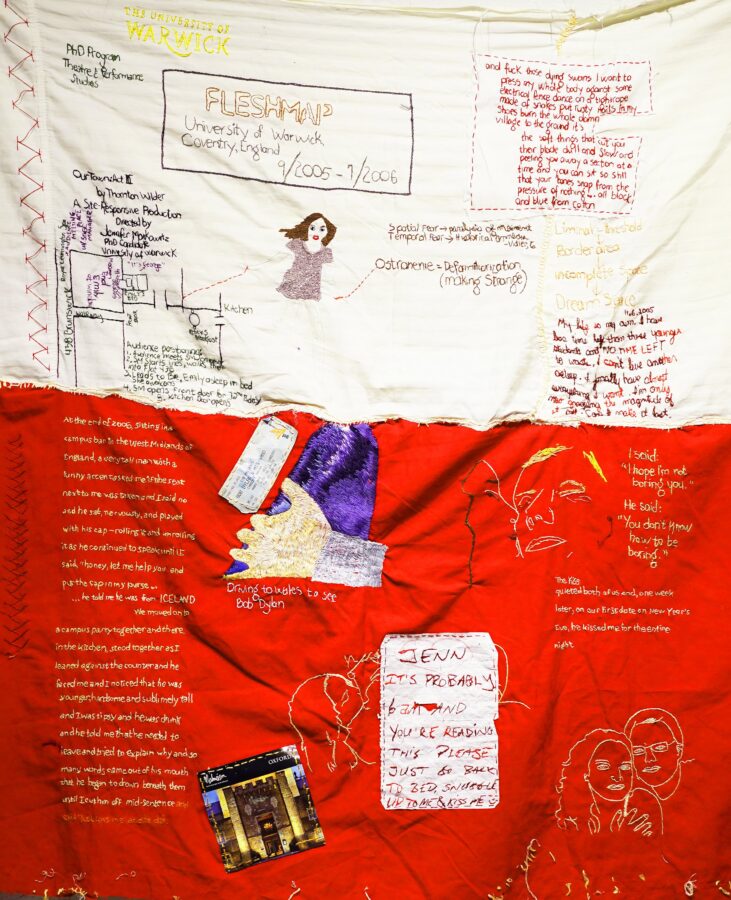
Markowitz’s work is also exhibited as part of the Nasher Museum’s Reckoning and Resilience: North Carolina Art Now. Stimulus Mask I, II,and III, which are embroidered onto organza silk face coverings,are facsimiles of the three stimulus checks distributed during the height of the COVID-19 pandemic.[3] Her stimulus masks reflect the interplay between the mask mandates and the government-sponsored relief funds that every American citizen experienced in 2020. My Ballot, My America 2 portrays a frayed and tattered 2020 election ballot, nodding to the propaganda that fueled an attempt to overturn a fair and free election. That effort is also narrated in her January 6, 2021, America, an aerial map of pro-Trump insurrectionists storming the National Mall; its style is reminiscent of textbook depictions of historical battles and attack routes. Together, these objects create a triptych of American democracy, demonstrating US fragility through the very materials.
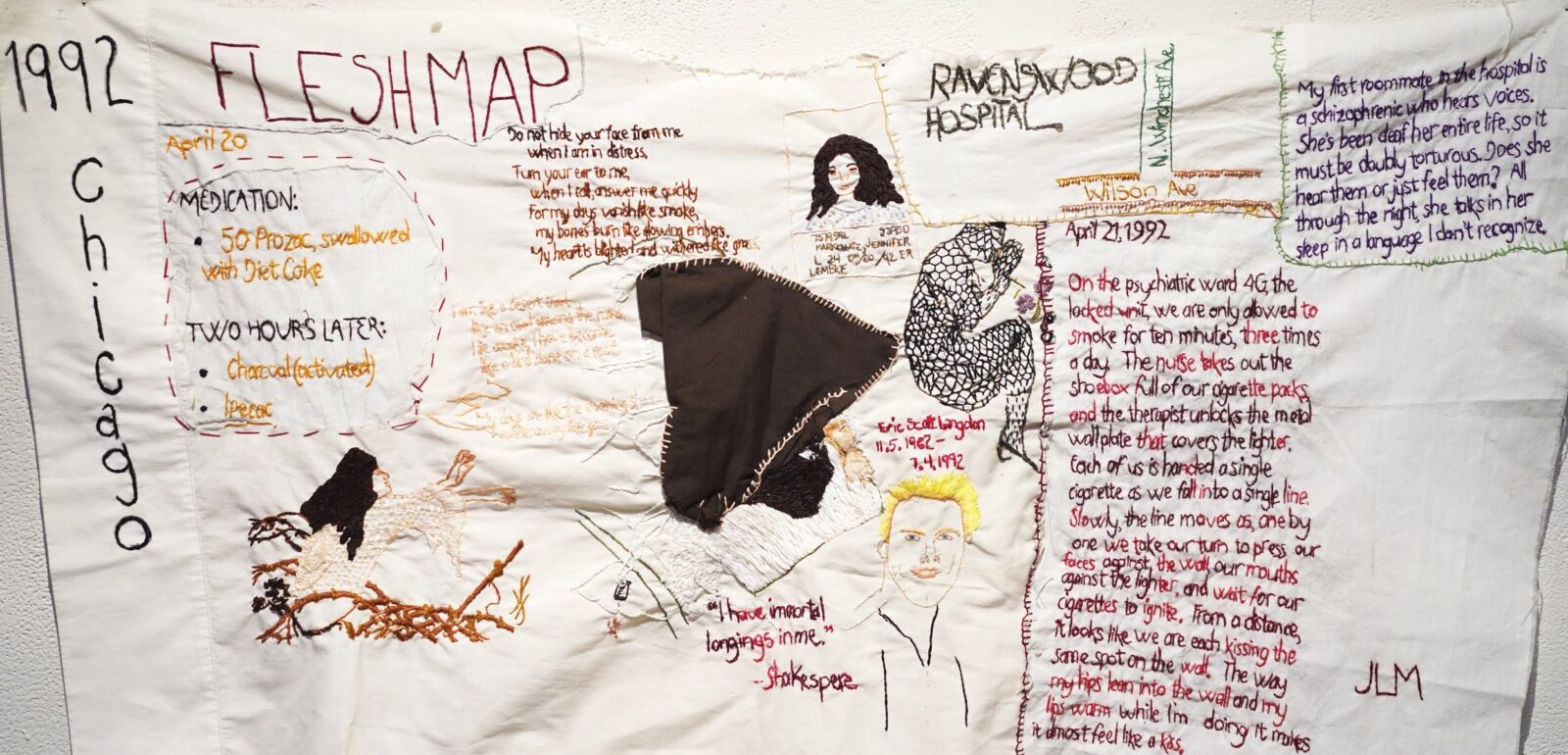
It makes sense that Markowitz’s formal training is in theater direction, with an emphasis in site-specific environments. Both Fleshmap and Reckoning and Resilience convey the drama of the inner and outer, the frenzied and the organized, the personal and political. But instead of witnessing a play within an auditorium, we see the director’s point of view staged on cloth. “Sometimes the thread speaks,” she says. “Sometimes I make it scream.”[4]
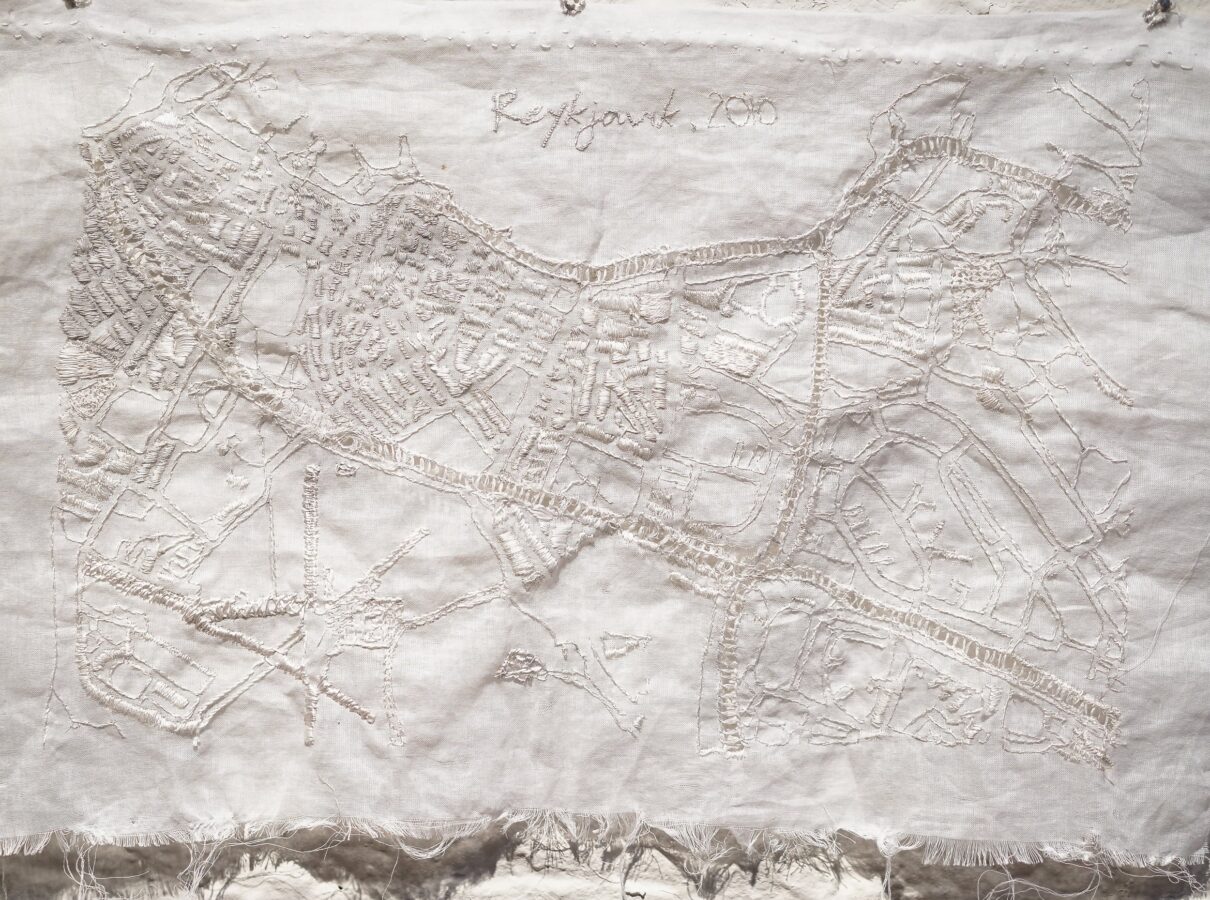
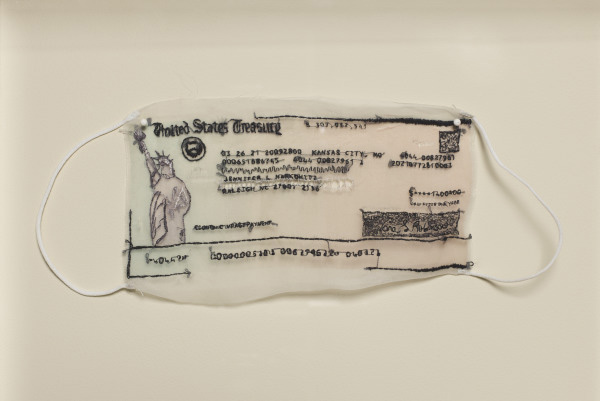
[1] Markowitz, Fleshmap: My Unraveling Geographies, Art Space, Raleigh, North Carolina, December 3, 2021, through February 15, 2022. https://artspacenc.org/markowitz-jennifer/.
[2] Van der Kolk, The Body Keeps the Score: Brain, Mind, and Body in the Healing of Trauma (New York, NY: Penguin, 2015), 13.
[3] Markowitz, featured in Reckoning and Resilience: North Carolina Art Now, Nasher Art Museum, Durham, North Carolina, January 13 through July 10, 2022.
[4] Markowitz, Jennifer Markowitz: Fine Art Hand Embroidered, March 2022, https://fleshmap.me.